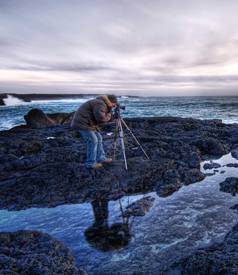Honest, paywall-free news is rare. Please support our boldly independent journalism with a donation of any size.
Icelandic members of parliament have plans to transform their crisis-ridden North-Atlantic nation into a sanctuary for publishers, production companies and information technology firms from around the world.
“It would free the press from fear,” says Thor Saari, one of the members of parliament spearheading the proposal, which is known as the Icelandic Modern Media Initiative (IMMI). Iceland’s Parliament, the Althingi, is expected to support the effort.
To craft their bill, members of parliament (MPs) drew on existing laws in the United States and European countries. “We tried to find the best [laws] in each country and merge it all into one proposal that the government will enact as legislation,” Saari says. A draft of the initiative proposes strengthening protection for whistleblowers, ensuring the anonymity of journalists’ sources, liberalizing the country’s freedom of information regulations, and creating Iceland’s first international award, which would honor freedom of expression.
The energy behind IMMI comes from the three MPs who belong to a protest party called the Movement and from members of the ruling Social Democrat/Left-Green coalition. They have received help from Julian Assange and Daniel Schmitt, the founders of the website Wikileaks. Assange and Schmitt became heroes in Iceland after publishing details of corporate loans issued by Kaupthing, a failed Icelandic bank. State television was forbidden by a court order to reveal the information due to banking secrecy laws. It appeared instead on Wikileaks.
An opportunity to propose the changes arose when Icelandic lawmakers recently decided to bring the country’s media laws up to speed with new technology. With a cool climate kind to computer servers and abundant, clean-burning geothermal energy, Iceland is already considered an ideal host for data centers from all over the globe. “‘The Switzerland of Bits’ is what they’re calling us,” Saari says.
Organizers are hoping that IMMI will give journalists the world over the legal confidence they need to publish investigations without being threatened by lawyers and politicians. “Newspapers in places like Africa and countries in the former Soviet Union, where you have fear of oppressive governments, can just move operations to Iceland where they couldn’t be touched,” Saari says. “We just have to be more specific about what constitutes hate speech and slander.”
But it isn’t just Zimbabwean and Belarusian journalists who are suffering. Britain is notorious for its allowance of “libel tourism.” Practically anything published online by anyone can be challenged in a British courtroom, and the threat of an expensive lawsuit alone is enough to convince journalists to cease and desist.
British libel law also allows judges to impose secret gag orders on the media, preventing the details of an investigation from being discussed publicly. Recently, on the talk show of prominent Icelandic journalist Egil Helgason, Assange said that there were 200 to 300 so-called “superinjunctions” in the United Kingdom as of late November. A recent example involved executives from the British oil-trading company Trafigura, who covered-up the disposal of toxic waste near Abidhan, the former capital of the Ivory Coast. The Guardian was set to publish incontrovertible evidence of the conspiracy, but a judge forbade it from doing so. The superinjunction was lifted, eventually, and Trafigura was ordered to compensate surviving victims.
British journalists, Saari says, have taken a keen interest in IMMI. “The BBC has sent two correspondents here to keep track of what we’re doing.”
Icelanders need not look any further than home to know the hazards of neglecting investigative journalism. During the boom years, the country’s bankers and investors engaged in shady financial practices that precipitated the current crisis. A reporter might have exposed the subterfuge that allowed banks to borrow 10 times the country’s GDP to finance corporate takeovers abroad, but mainstream journalists in Iceland were disinterested. They had — and still have — close ties to the country’s political and financial elites.
“What is there to do when the whole media apparatus fails to perform its tasks?” asks Saari. “It’s a bizarre situation, and the only journalists who are trying to do something are the people who work for the state broadcaster. But they are being laid off left and right.”
Saari isn’t betting that IMMI — assuming it is approved by the Althingi — will turn Reykjavik into a publishing mecca. Instead, he hopes — and believes — it will spark a journalistic renaissance. “If Iceland was to enact the legislation, … probably other countries would be forced to follow suit. If this turns out well, why wouldn’t the public in other countries demand it?”
Sam Knight lives in Washington, D.C., where he is the events editor for OhMyGov.com
Press freedom is under attack
As Trump cracks down on political speech, independent media is increasingly necessary.
Truthout produces reporting you won’t see in the mainstream: journalism from the frontlines of global conflict, interviews with grassroots movement leaders, high-quality legal analysis and more.
Our work is possible thanks to reader support. Help Truthout catalyze change and social justice — make a tax-deductible monthly or one-time donation today.
